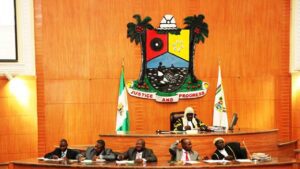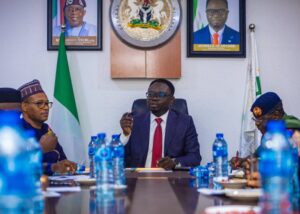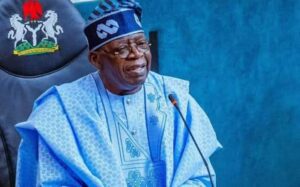
ECOWAS attack on Niger’ll increase banditry threat in Nigeria — Diplomatic Delegation warns
The leader of a diplomatic delegation to Niger, the National Missioner of Ansar- ud-Deen Society, Abdurrahman Ahmad, has warned Nigeria that any escalation of tensions between it and Niger could lead to the proliferation of insurgency and heightened cross-border attacks by bandits.
Ahmad also underscored the importance of avoiding military confrontation, stating that Nigeria is already grappling with various internal challenges, including socioeconomic and political issues.
He said this when he led a delegation of Islamic scholars that undertook a journey to Niger to engage with junta leader General Abdourahamane Tchiani.
The primary aim was to peacefully address the recent coup and facilitate the restoration of President Mohamed Bazoum, who was overthrown on July 26, 2023.
He stressed that plunging into a military conflict would exacerbate these problems and potentially spark a proxy war, further destabilizing the region.
The Economic Community of West African States (ECOWAS), led by Nigerian President Bola Tinubu, had issued a threat to employ military force if diplomatic measures failed.
However, initial diplomatic efforts led by former Nigerian Head of State Gen Abdulsalami Abubakar were rebuffed by the junta.
In an exclusive interview granted by a television channel, Ahmad provided insights into their journey and meetings with the Niger junta.
He disclosed that the junta leaders were dissatisfied due to Nigeria’s abrupt disconnection of electricity to Niger without consultation.
Ahmad further highlighted the historical, cultural, and linguistic ties between Nigeria and Niger, making the prospect of war akin to declaring war on themselves.
He expressed concerns about the porous northern borders and the potential for insurgency to intensify if conflicts were to escalate.
The Islamic scholar’s delegation was received with a warm welcome by the Niger leadership, signaling a readiness for diplomatic engagement.
Ahmad detailed their discussions with the junta, revealing that the leaders expressed remorse for their actions towards the Nigerian delegation led by Gen Abdulsalami Abubakar.
He said, “The junta leader acknowledged that their initial reaction was fueled by anger and frustration over the electricity disconnection.
“The junta leader communicated their willingness to engage in negotiations with ECOWAS, under certain conditions.
“They also assured that their intention was not to perpetuate their hold on power indefinitely, but to stabilise the nation and the sub-region.
“However, they indicated that they required the lifting of sanctions and the restoration of electricity as prerequisites for further discussions.”
Ahmad shared his optimism about the ongoing diplomatic efforts, approved by Nigerian President Bola Tinubu, to continue engagement with the Niger leadership.
He acknowledged that diplomatic negotiations involve strategic positioning, and he believed that the junta would not backtrack on their commitments.
While there were reports of the ousted President facing prosecution for high treason, Ahmad interpreted this as a diplomatic maneuver rather than a contradiction.
He noted that in such situations, stakeholders often leverage their positions for favourable negotiations.
Addressing concerns about the Nigerien military’s claim that their intervention was to safeguard Nigeria, Ahmad revealed that while he had gleaned some insight into the matter, certain details were not suitable for public disclosure due to the ongoing diplomatic efforts.
Ahmad emphasised that Nigeria should be cautious of the impact of external powers’ interests in Niger, particularly France’s role in supporting insurgency against Nigeria.
The missioner urged a united diplomatic approach to foster regional stability and cooperation.



